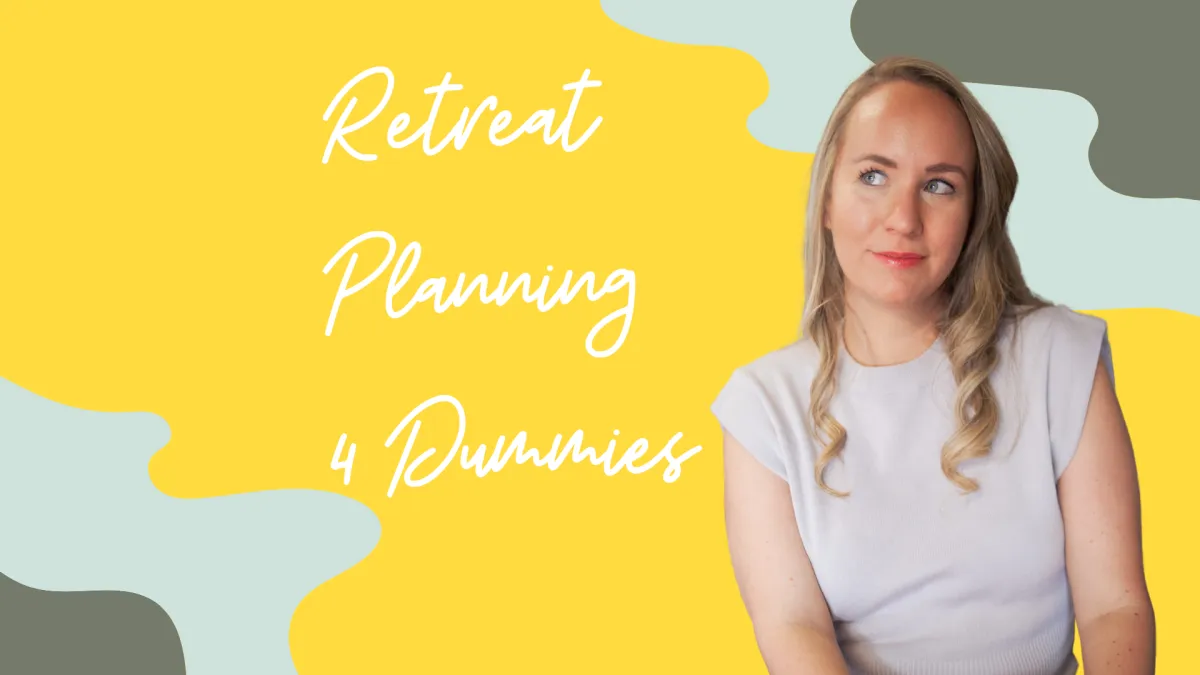How To Run Profitable Retreats Blog

Retreat Planning for Dummies
“Surround yourself with inspiring beings"

Retreat Planning for Beginners: A Simple Guide to Organizing Your First Retreat
Planning a retreat for the first time might seem daunting, but it doesn't have to be. With a step-by-step approach, you can organize a successful and memorable retreat, even as a beginner. This blog post is your go-to guide, simplifying the retreat planning process into manageable steps.
Define the Purpose of Your Retreat: Every successful retreat starts with a clear purpose. Are you aiming for relaxation, team building, spiritual growth, or personal development? Your retreat's purpose will guide all your decisions, from the venue to the activities you plan.
Set a Budget: Before diving into the details, determine your budget. This will include costs for the venue, food, activities, guest speakers or facilitators, and marketing. A realistic budget keeps your planning on track and helps avoid any financial surprises.
Choose the Right Venue: Your venue should align with the retreat’s purpose. Look for places that offer the right balance of amenities and atmosphere. Whether it’s a tranquil countryside location or a cozy mountain lodge, the venue sets the stage for your retreat experience.
Plan the Schedule: Develop a schedule that reflects your retreat's purpose. Include a mix of activities, workshops, and free time. Balance is key – you want to offer enough structure to keep guests engaged without overwhelming them.
Market Your Retreat: Now it’s time to attract attendees. Use social media, email marketing, and personal networks to spread the word. Tailor your promotional material to highlight what makes your retreat unique and appealing.
Manage Registrations and Bookings: Set up a system for handling registrations and bookings. This could be as simple as an online form or a more sophisticated booking platform. Clear communication regarding pricing, inclusions, and cancellation policies is crucial.
Coordinate Logistics: This involves working with vendors, arranging transportation, and ensuring all supplies are in place. Pay attention to the small details – they can make a big difference in the overall experience.
Prepare for Guest Arrival: As the retreat date approaches, send out a welcome pack with essential information like the schedule, packing list, and what to expect. This helps set the tone and builds anticipation.
Host Your Retreat: During the retreat, your role is to facilitate a smooth and enjoyable experience. Be present, engage with guests, and be ready to adapt if needed.
Post-Retreat Follow-Up: After the retreat, gather feedback from your guests. This will be invaluable for improving future retreats.
Remember, retreat planning is a learning experience. Each retreat offers an opportunity to refine your skills. Start with these basic steps, and don’t be afraid to add your personal touch. Your passion and dedication are what will truly make your retreat a success.
If you're eager to dive into hosting retreats and want to bypass the typical learning curve, I have the perfect opportunity for you. Book a call with me today and embark on a journey with "Mastering The Art of Retreat Planning." This unique program is designed to equip you with vital tools, insights, and knowledge, making it ideal for those driven to create meaningful and transformative retreat experiences.
Seize this opportunity to elevate your retreat planning abilities, crafting events that deeply reflect your vision and goals. Reach out now and let's discuss how this program can become an integral part of your retreat planning adventure. By joining forces, we can unlock the full potential of your upcoming retreats, turning your visions into reality.


